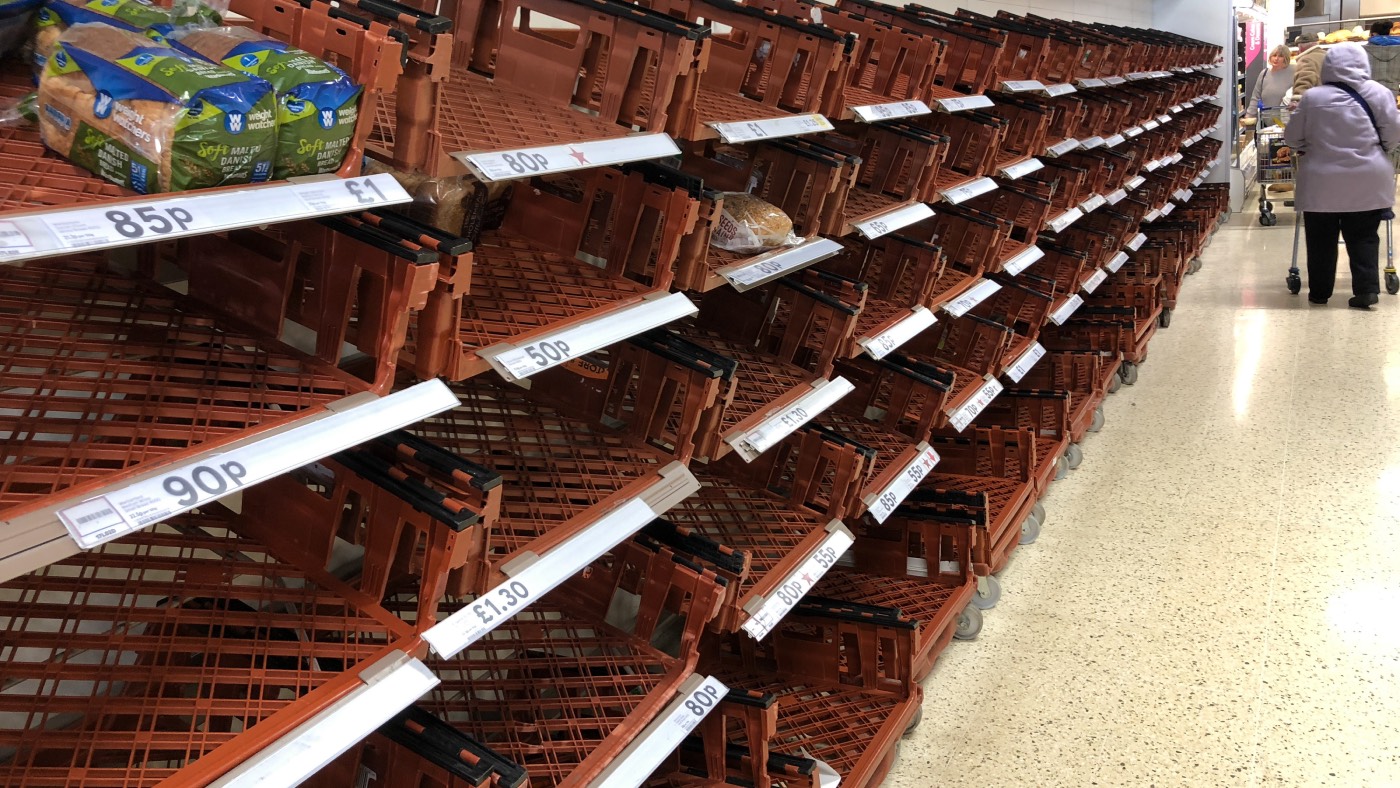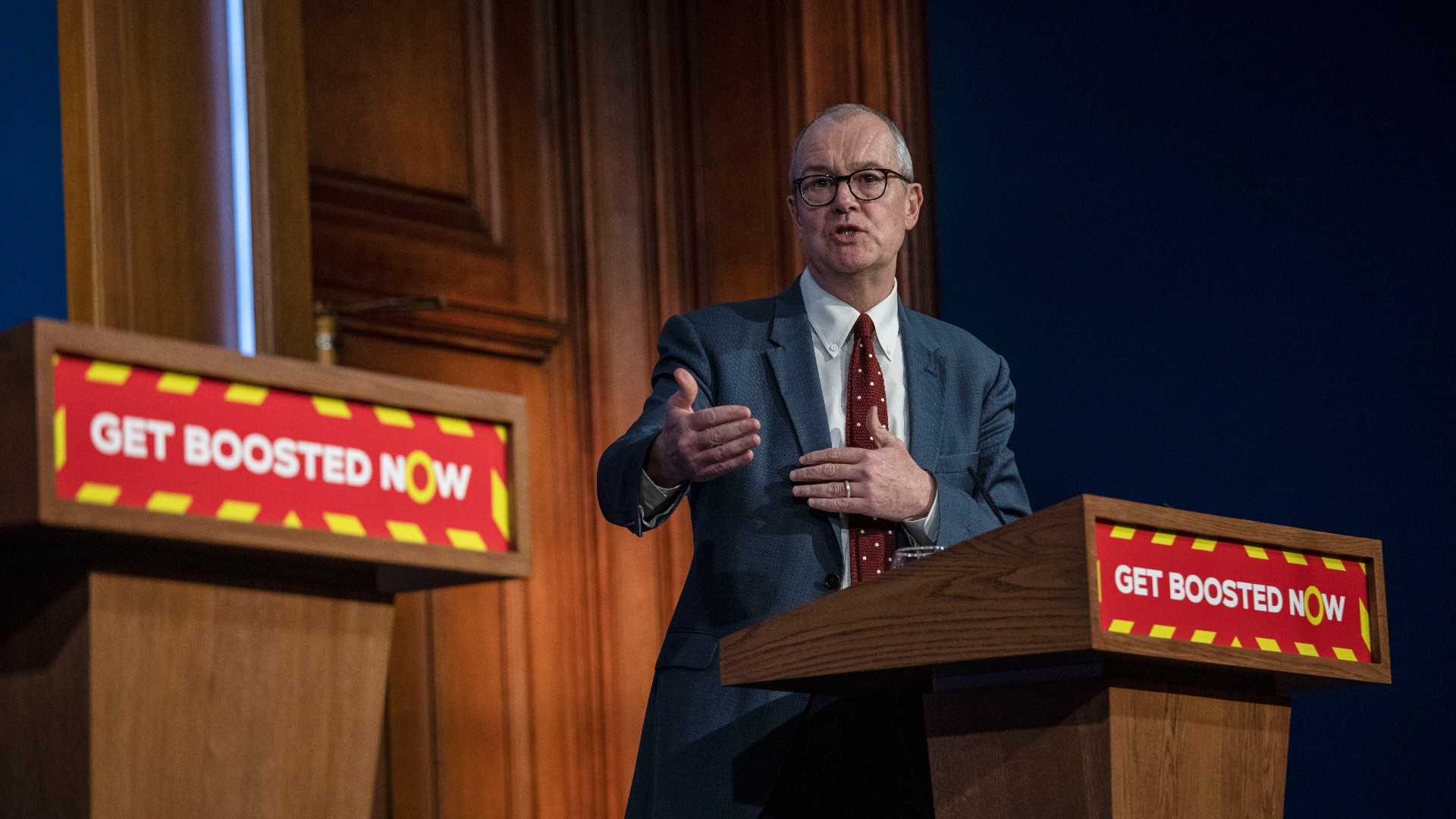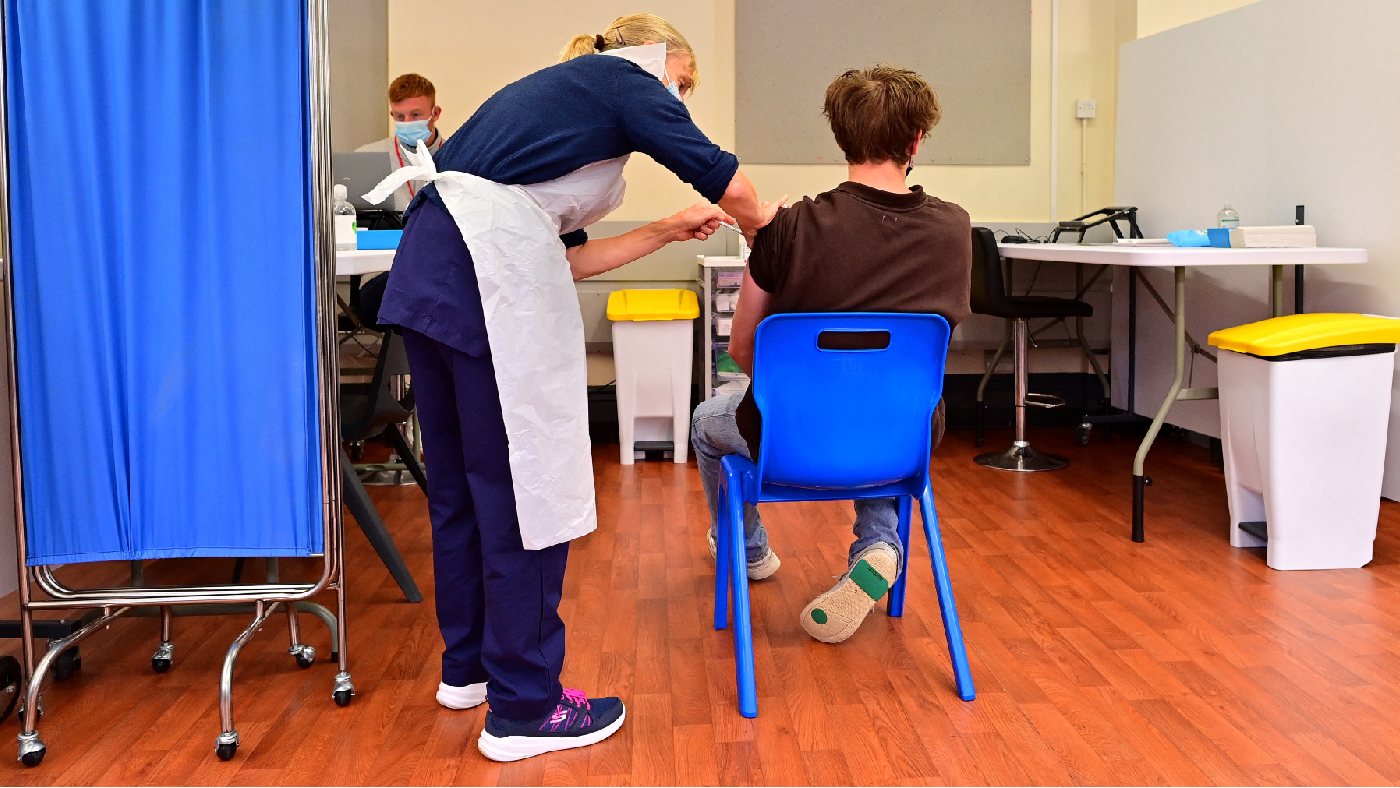Panic buying and army guards - supermarkets rehearse coronavirus scenarios
Expert says ‘feed the nation’ plans are already being drawn up by major chains

A free daily email with the biggest news stories of the day – and the best features from TheWeek.com
You are now subscribed
Your newsletter sign-up was successful
British supermarkets have drawn up contingency plans designed to help the nation deal with any panic buying brought on by a sudden escalation of the coronavirus.
The Guardian says that the “feed the nation” plans would see supermarkets work with suppliers to scale back the variety of foods and groceries available, concentrating instead on maintaining supplies of staple products.
The City analyst Bruno Monteyne, of investment firm Alliance Bernstein, said that retailers have “ready-made plans” to deal with disruption and move to “feed-the-nation” status because a major outbreak of the virus could result in “panic buying, empty shelves and food riots.”
The Week
Escape your echo chamber. Get the facts behind the news, plus analysis from multiple perspectives.

Sign up for The Week's Free Newsletters
From our morning news briefing to a weekly Good News Newsletter, get the best of The Week delivered directly to your inbox.
From our morning news briefing to a weekly Good News Newsletter, get the best of The Week delivered directly to your inbox.
In a note to investors, Monteyne, previously a supply chain director at Tesco, said: “Yes, it will be chaotic (and expect pictures of empty shelves), but the industry will reduce complexity to keep the country fed.”
He added that Tesco has practised “multi-day simulation” exercises, including mocked-up news coverage. The grocer confirmed the story and said the plans were all part of being a “responsible retailer.”
Expanding on the “major reduction in ranges” he expects, Monteyne said large chains were likely “to be drawing up lists right now of which products will be prioritised”.
If there are acute food shortages he said he expected the army to be called in “to protect depots, food trucks and stores”.
A free daily email with the biggest news stories of the day – and the best features from TheWeek.com
He insisted that he did not expect prices to rise because “food retailers cannot be seen to be profiteering at a moment of crisis”.
Nevertheless, the industry has already noted a change in buying habits as concern over the coronavirus grows.
Iceland said: “Sales of frozen food have seen notable increases and we have noticed a trend towards customers selecting multibuy deals and larger packs.”
Ocado has advised customers to place orders further in advance than usual because of “exceptionally high demand”. It said: “More people than usual seem to be placing particularly large orders.”
Ratula Chakraborty, professor of business management at the University of East Anglia, told Sky News that the stockpiling in UK homes "may become rife”.
The trend is already beginning in other countries. The BBC says Australian supermarket shelves are being “stripped of supplies” and the Daily Mail reports of “panic buying” by “anxious shoppers”.
–––––––––––––––––––––––––––––––For a round-up of the most important stories from around the world - and a concise, refreshing and balanced take on the week’s news agenda - try The Week magazine. Get your first six issues for £6–––––––––––––––––––––––––––––––
-
 5 royally funny cartoons about the former prince Andrew’s arrest
5 royally funny cartoons about the former prince Andrew’s arrestCartoons Artists take on falling from grace, kingly manners, and more
-
 The identical twins derailing a French murder trial
The identical twins derailing a French murder trialUnder The Radar Police are unable to tell which suspect’s DNA is on the weapon
-
 Political cartoons for February 21
Political cartoons for February 21Cartoons Saturday’s political cartoons include consequences, secrets, and more
-
 The new Stratus Covid strain – and why it’s on the rise
The new Stratus Covid strain – and why it’s on the riseThe Explainer ‘No evidence’ new variant is more dangerous or that vaccines won’t work against it, say UK health experts
-
 Covid-19: what to know about UK's new Juno and Pirola variants
Covid-19: what to know about UK's new Juno and Pirola variantsin depth Rapidly spreading new JN.1 strain is 'yet another reminder that the pandemic is far from over'
-
 Vallance diaries: Boris Johnson 'bamboozled' by Covid science
Vallance diaries: Boris Johnson 'bamboozled' by Covid scienceSpeed Read Then PM struggled to get his head around key terms and stats, chief scientific advisor claims
-
 Good health news: seven surprising medical discoveries made in 2023
Good health news: seven surprising medical discoveries made in 2023In Depth A fingerprint test for cancer, a menopause patch and the shocking impacts of body odour are just a few of the developments made this year
-
 How serious a threat is new Omicron Covid variant XBB.1.5?
How serious a threat is new Omicron Covid variant XBB.1.5?feature The so-called Kraken strain can bind more tightly to ‘the doors the virus uses to enter our cells’
-
 Will new ‘bivalent booster’ head off a winter Covid wave?
Will new ‘bivalent booster’ head off a winter Covid wave?Today's Big Question The jab combines the original form of the Covid vaccine with a version tailored for Omicron
-
 Neanderthal gene ‘caused up to a million Covid deaths’
Neanderthal gene ‘caused up to a million Covid deaths’Speed Read Genetic tweak found in one in six Britons means cells in the lungs are slower to launch defences
-
 Can North Korea control a major Covid outbreak?
Can North Korea control a major Covid outbreak?feature Notoriously secretive state ‘on verge of catastrophe’